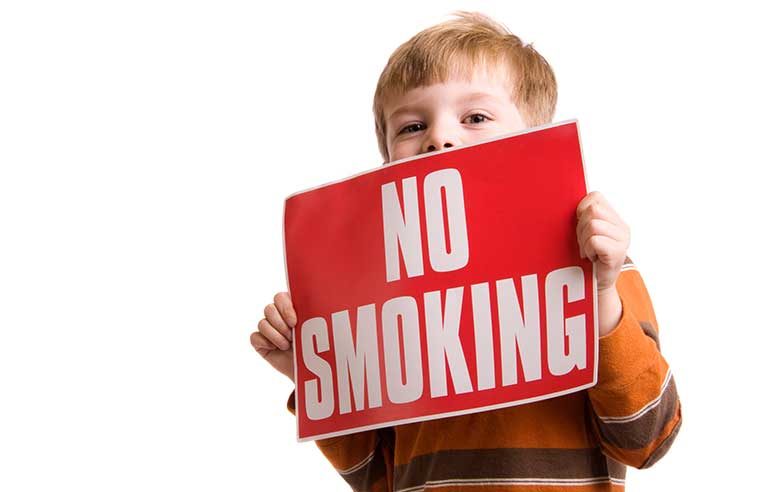AHA to parents: Create a smoke-free environment for children

Photo: princessdlaf/iStockphoto
Dallas – Parents should enforce “zero tolerance” when it comes to their children being exposed to secondhand cigarette smoke, which can damage their heart and respiratory health, according to a recent scientific statement published by the American Heart Association.
Children are “especially vulnerable” because they’re unable to limit smoking around them, and “appear to be particularly susceptible physically to the smoke’s effects,” as chemicals contained in secondhand smoke can alter blood flow, blood pressure and heart rhythm.
Secondhand smoke has been linked to cardiovascular risk factors that include obesity, high cholesterol, artery damage and insulin resistance (a precursor to diabetes), AHA states. The association also notes that children are more likely to smoke if their parents do.
African-American children are at the greatest risk for exposure, according to AHA: Data from 2011 to 2012 shows that 68 percent of non-Hispanic, African-American children ages 3 to 11 were exposed to secondhand smoke, compared with 37 percent of non-Hispanic white children and 30 percent of Hispanic children.
“Parents should consider making their children’s environment smoke free because cigarette smoke exposure is harmful to children’s long-term heart health and may shorten life expectancy,” Dr. Geetha Raghuveer, pediatric cardiologist and chair of the AHA expert panel that authored the statement, said in a press release.
The statement was published online Sept. 12 in the AHA journal Circulation.
An estimated 24 million U.S. children are exposed to secondhand smoke, mainly because their parents smoke. A study conducted in 2011-2012 found cotinine, defined by the Centers for Disease Control and Prevention as a product formed after nicotine enters the body, in almost 41 percent of children ages 3 to 11 and in 34 percent of children ages 12 to 19, despite decreasing rates in adult smoking and children who live with smokers.
Post a comment to this article
Safety+Health welcomes comments that promote respectful dialogue. Please stay on topic. Comments that contain personal attacks, profanity or abusive language – or those aggressively promoting products or services – will be removed. We reserve the right to determine which comments violate our comment policy. (Anonymous comments are welcome; merely skip the “name” field in the comment box. An email address is required but will not be included with your comment.)

